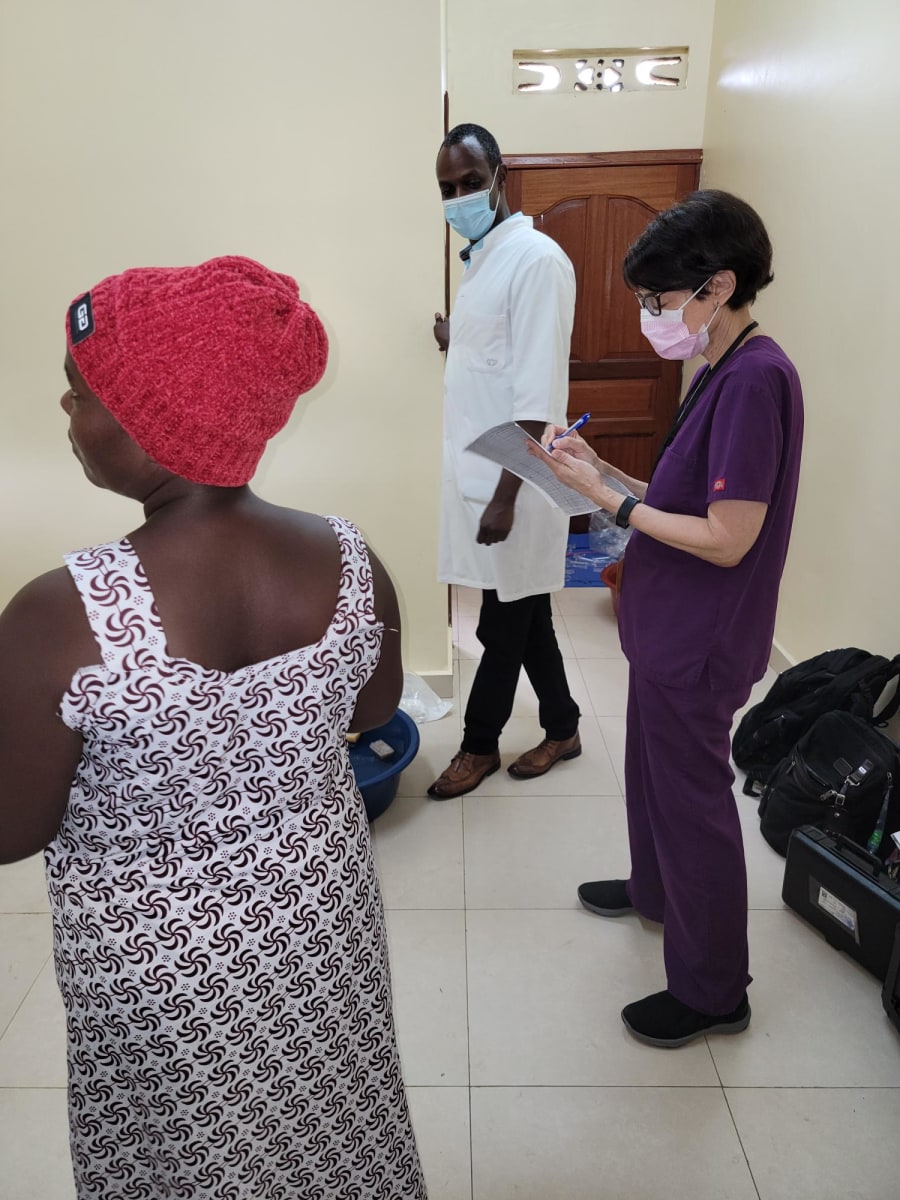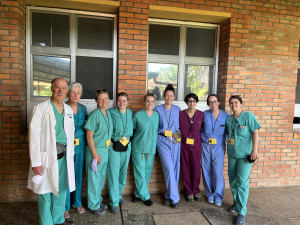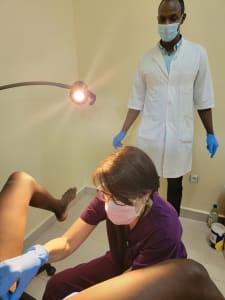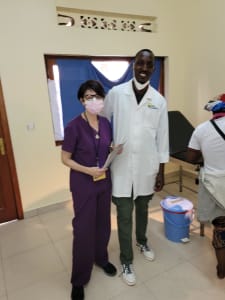The objectives of the project will be to help set up clinics to perform visual inspection with acetic acid (VIA) and train nurses and physicians in the procedure. Not enough women get pap smears, to screen for cervical cancer, and the rate of women dying from cervical cancer is unnecessary.
Women in Rwanda who don't have regular cervical cancer screening (pap/HPV tests). The powers that be in Rwanda want to help prevent cervical cancer.
Local doctors and nurses will be taught VIA, so that this can be used for women who don't get regular cervical cancer screening, and any abnormalities that could lead to cancer can be treated on the spot. Hopefully, in the long run, this will decrease the rate of cervical cancer deaths of women in Rwanda.










Many Rwandan women unnecessarily die of cervical cancer every year. Although there had been vaccination programs in the past against HPV in Rwanda, they were not as widespread and ongoing as they could be. Therefore, for Rwandan women who don't usually get regular screenings such as Pap and HPV tests, the visual inspection with acetic acid (VIA) screening that is being taught to medical personnel in Rwanda (as well as colposcopy and LEEP), can help women avoid cervical cancer or catch abnormal cervical cells early enough to be treated.
This is a continuing endeavor to teach VIA more medical providers, at more sites on each trip. There are monthly zoom meetings between visits between Rwandan and American providers to discuss the program. I was chosen to help represent the ASCCP in this program, and I was assisted by the Doximity Foundation to attend. The IOWD (International Organization for Development and Women) has also been involved in this project for several years, as well as gyn oncologists from Brown University and the Cleveland Clinic.